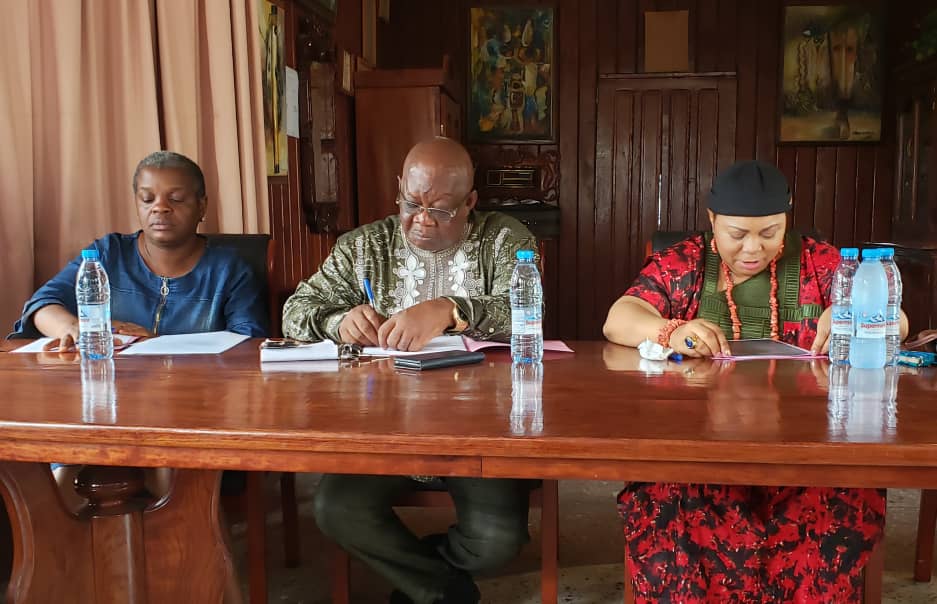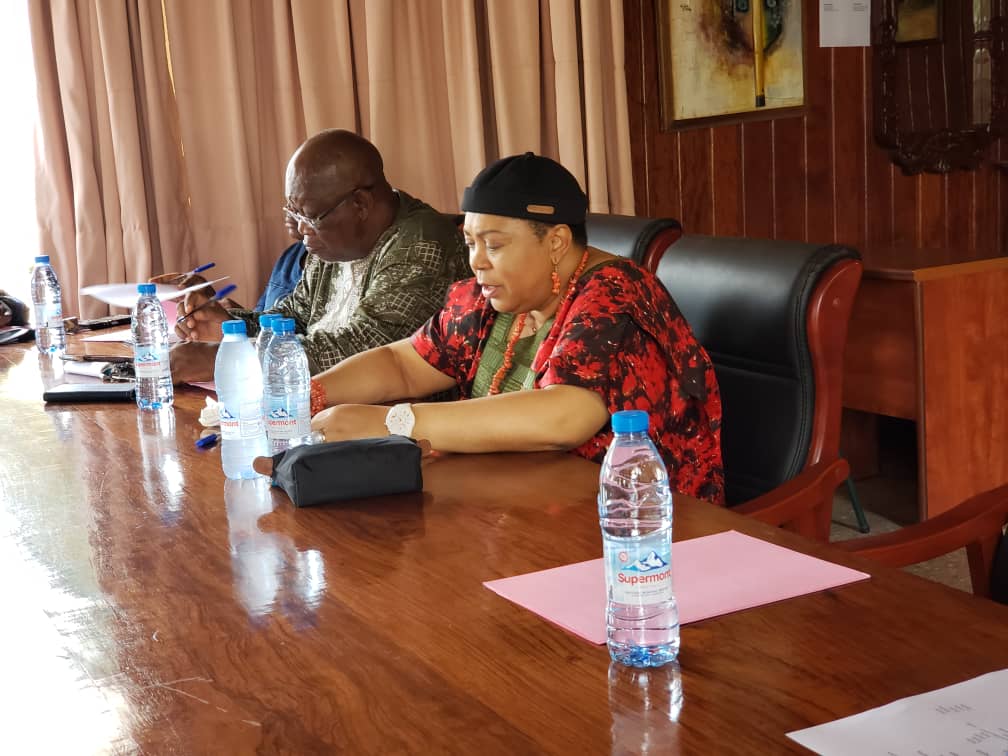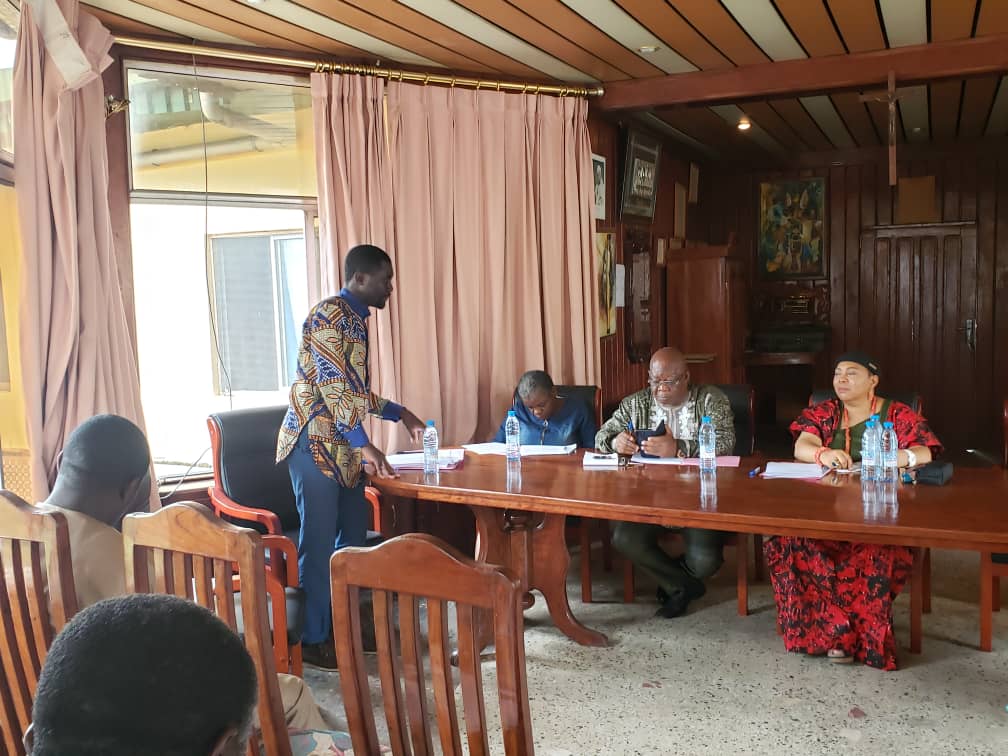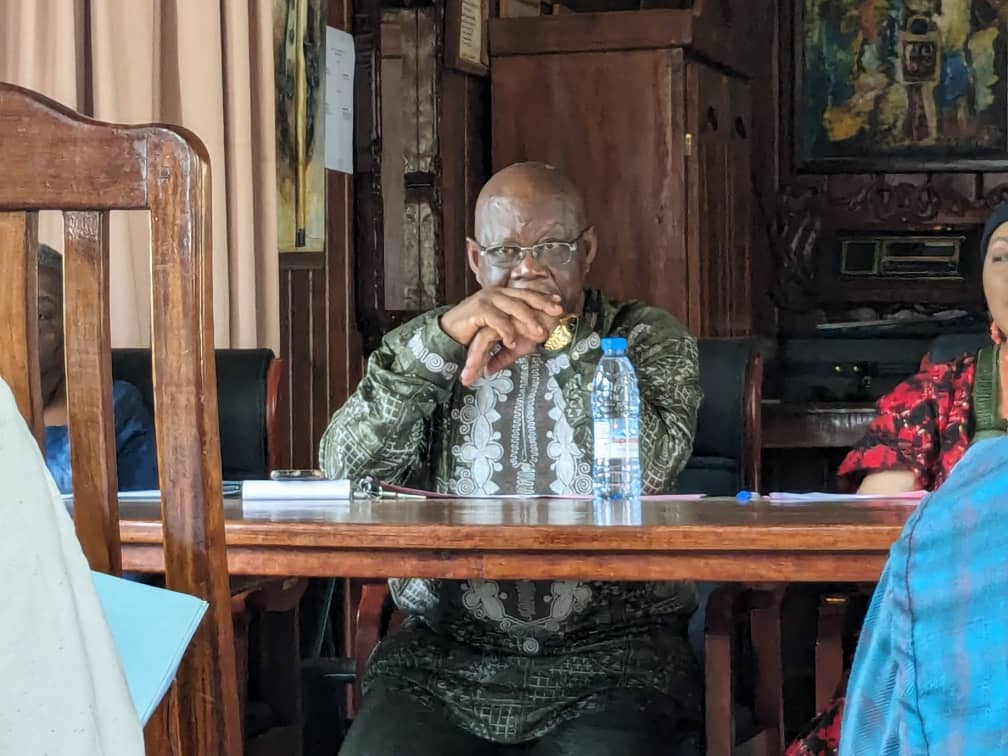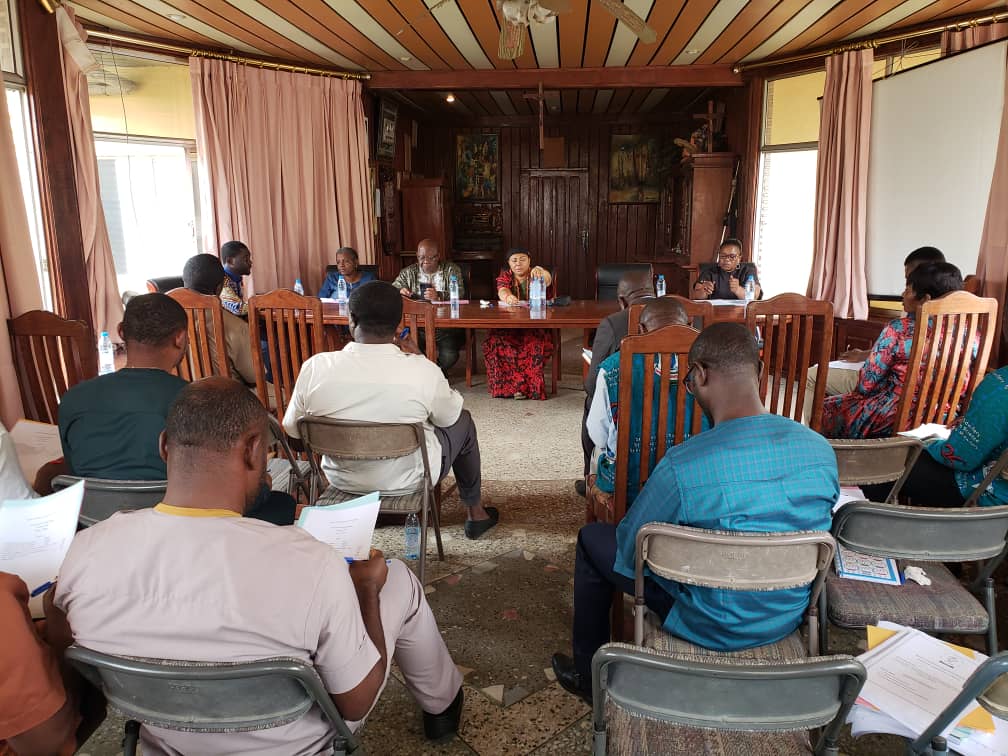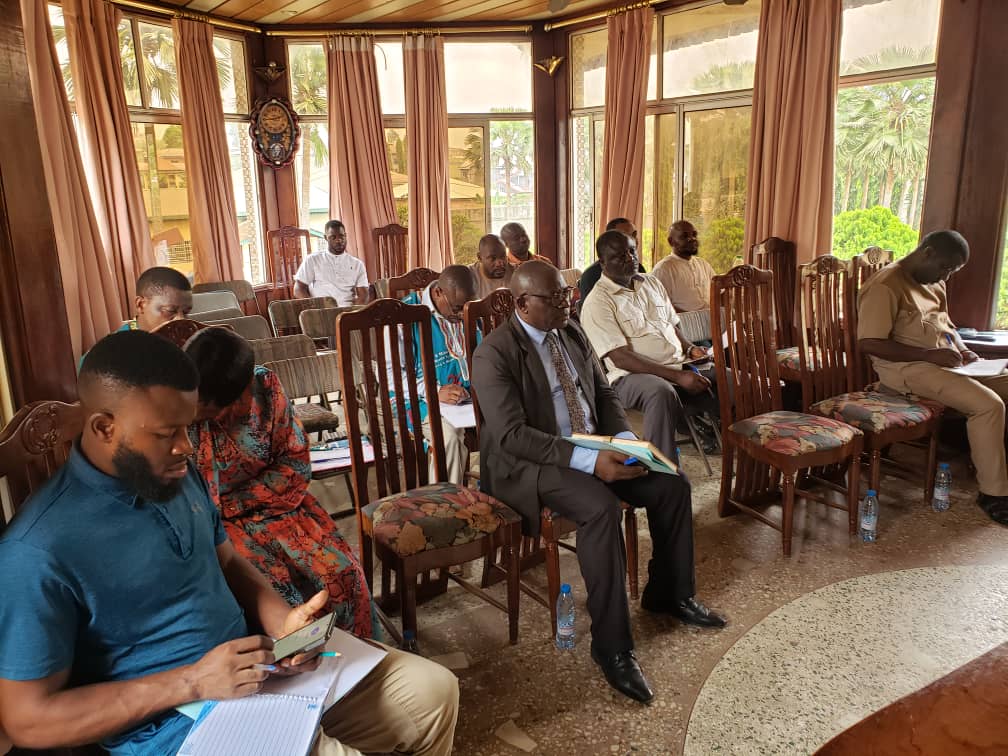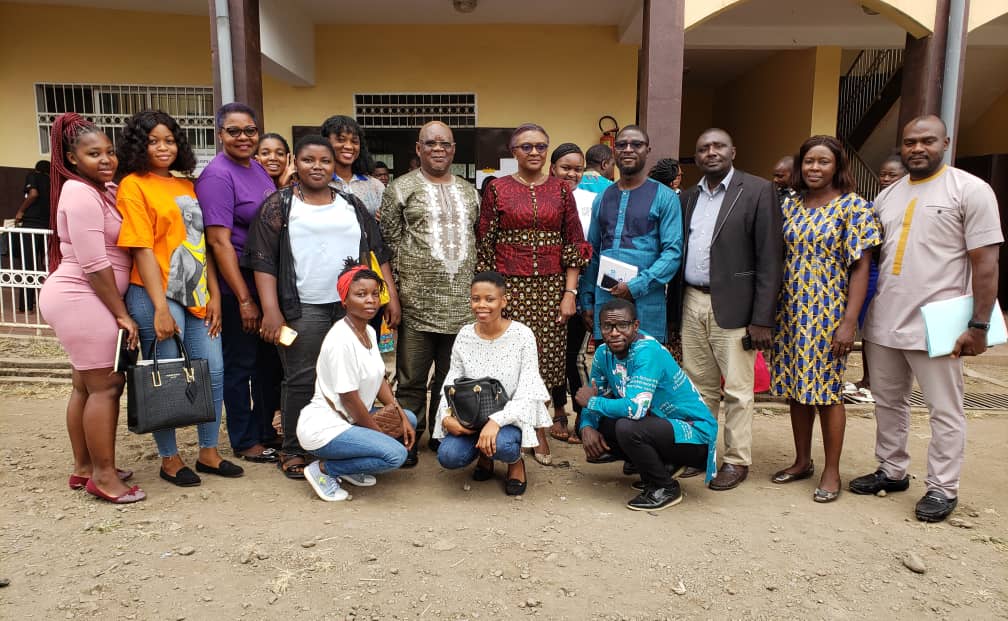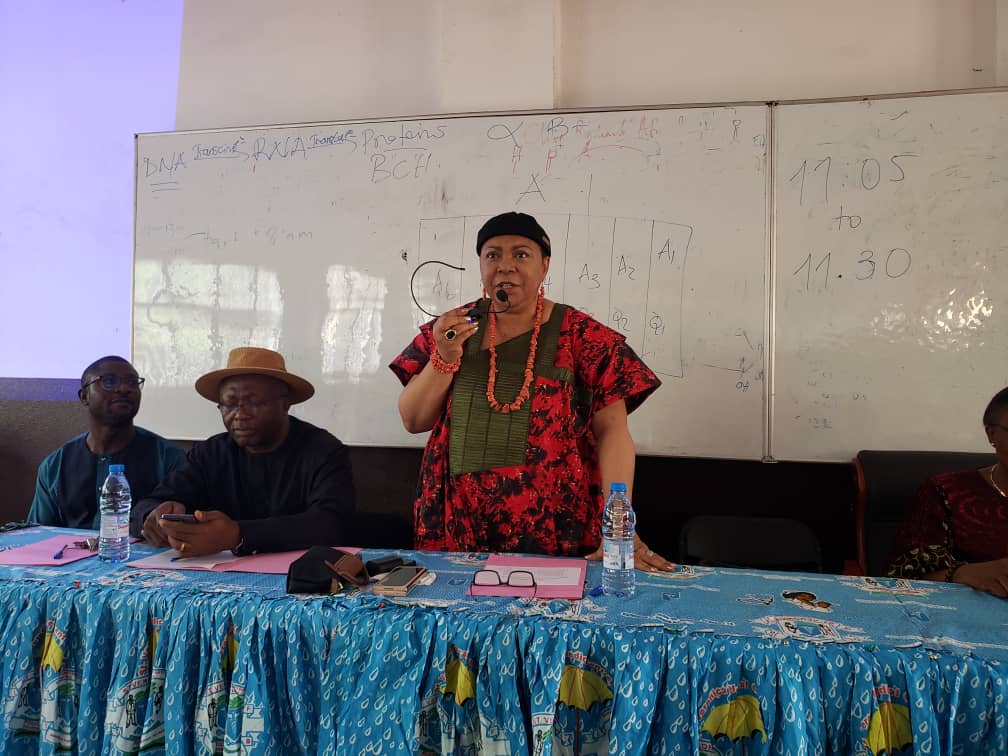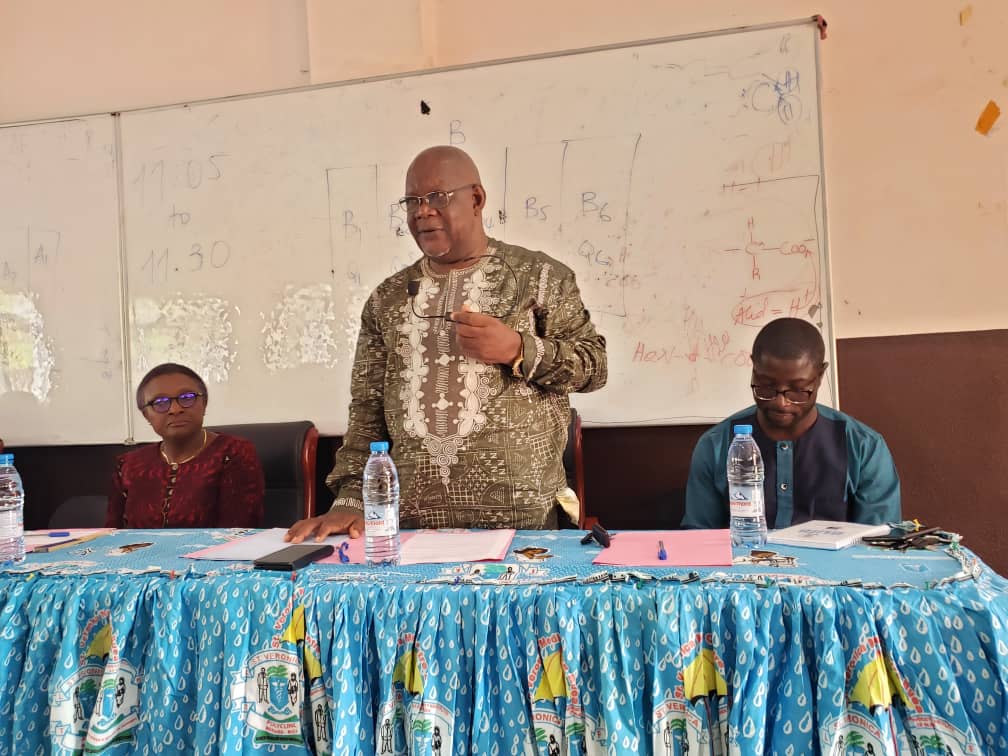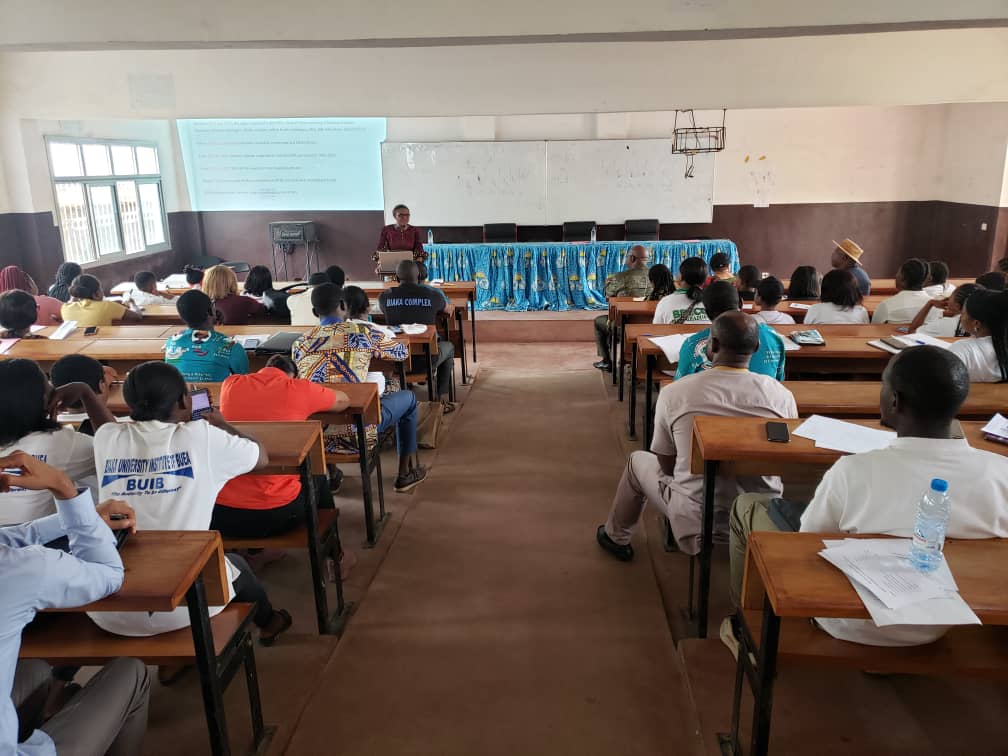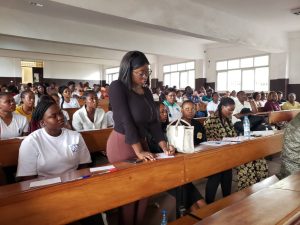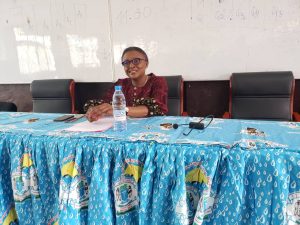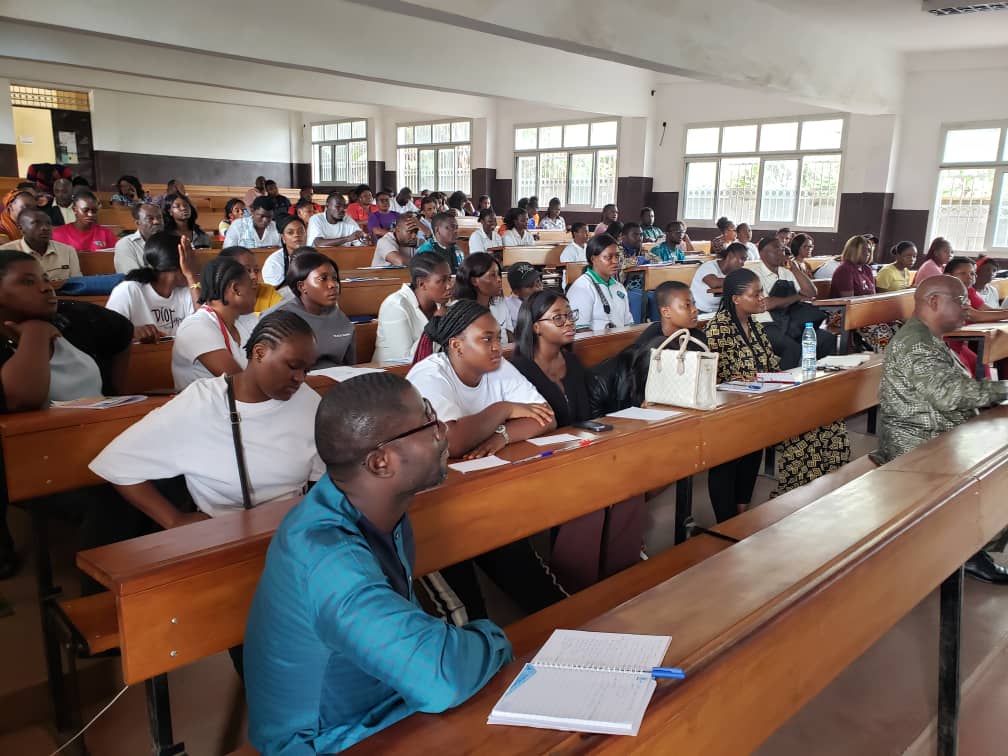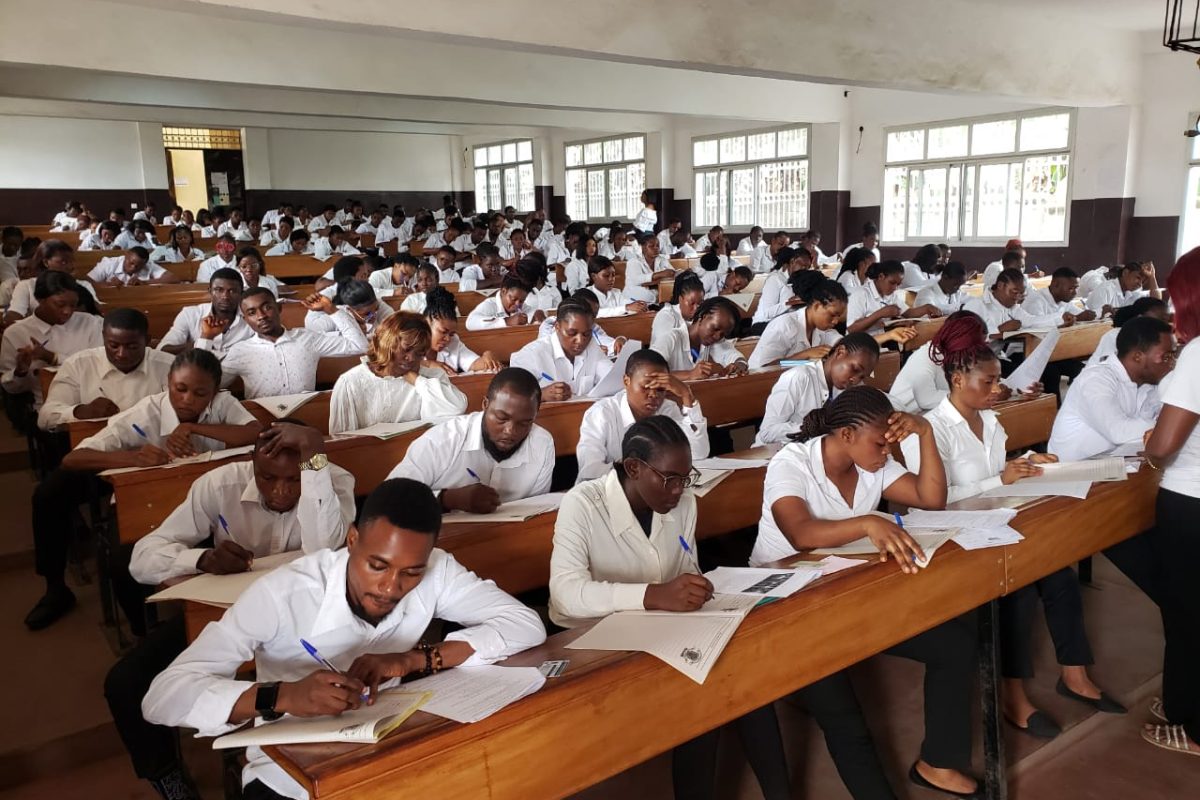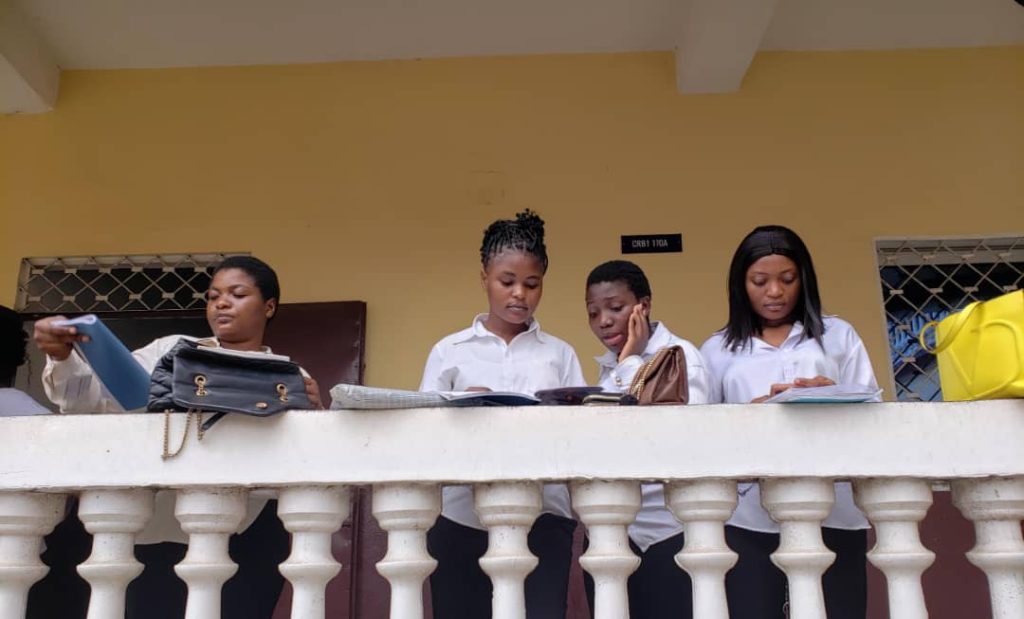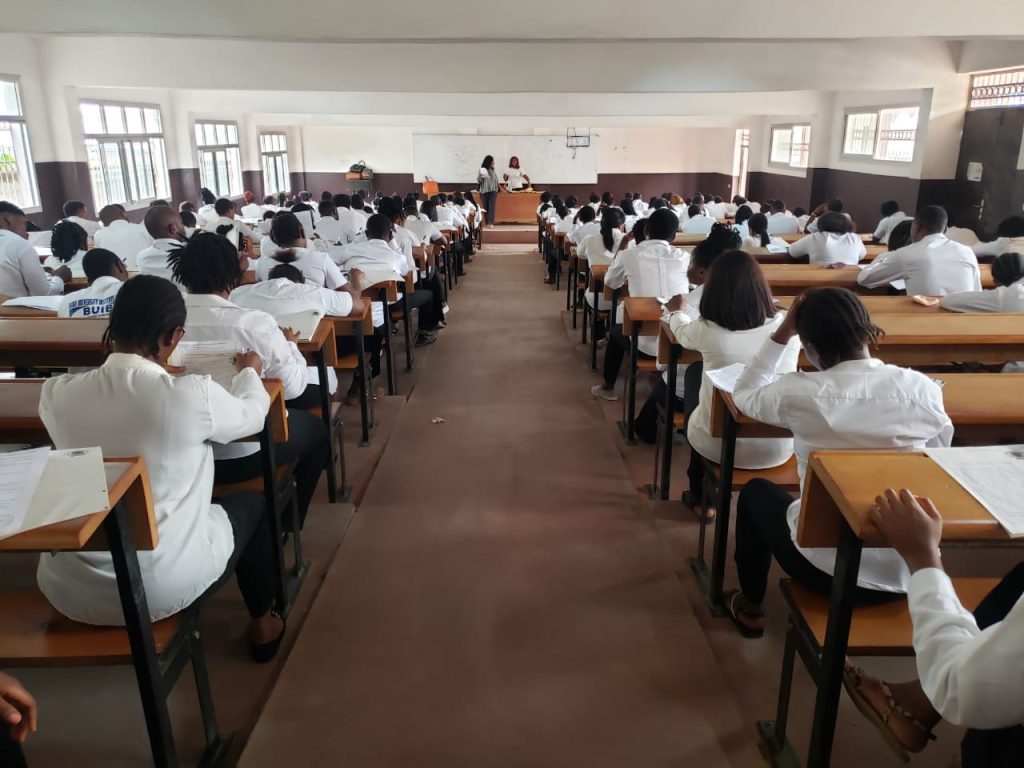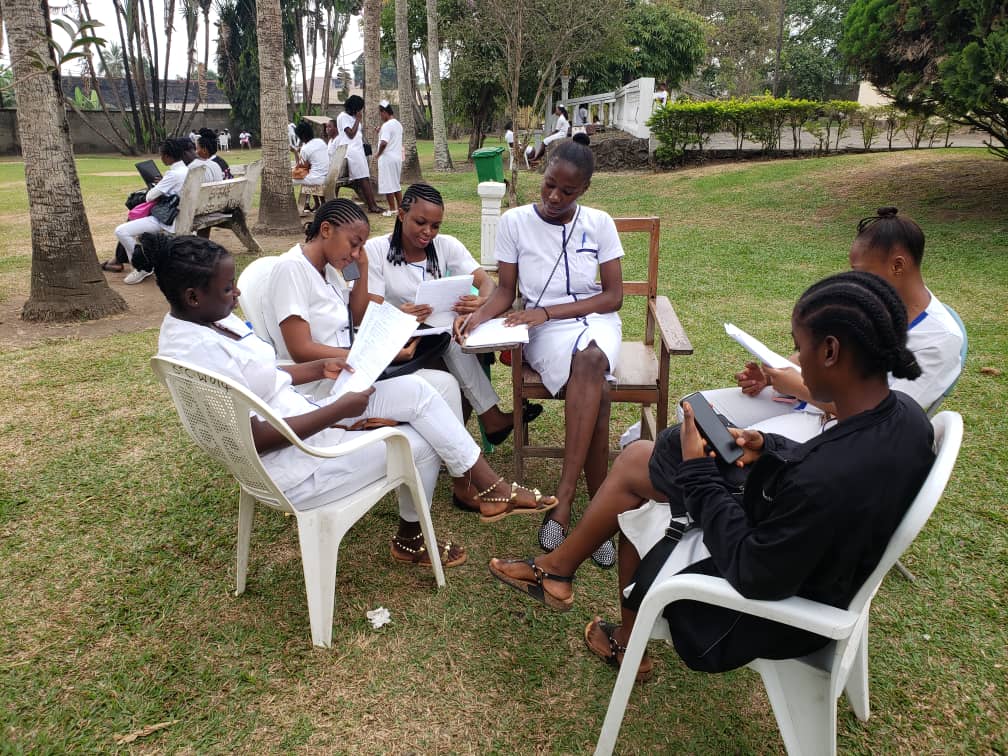Biaka University Institute of Buea (BUIB) eagerly anticipated the opening day of the 29th edition of the Mount Cameroon Race of Hope, a prestigious event that brought together athletes from across the nation. The Molyko Omnisport Stadium buzzed with excitement as participants, spectators, and dignitaries gathered for the grand occasion.

Presiding over the event was the esteemed Minister of Sports and Physical Education; Chief Professor Narcisse M. Kombi whose presence added an air of officialdom to the proceedings. The Minister’s passionate opening remarks set the tone for the day, emphasizing the importance of sportsmanship and unity in such competitions.
The welcome address was gracefully delivered by the Mayor of Buea, whose municipality had always been the proud host of this iconic race. Expressing gratitude for the opportunity to host the event once again, the Mayor highlighted the significance of the race in promoting health, unity, and the spirit of competition within the community.
The President of the National Bureau of the Athletic Federation took the stage, extending heartfelt thanks to the organizing members, partners, and sponsors who made the event possible. With conviction in his voice, he declared that the 29th edition would be the best in the history of the Mount Cameroon Race of Hope. His words resonated through the stadium, instilling a sense of anticipation and excitement among the crowd.

In a touching moment, the President recognized the oldest athlete on the course, a testament to the enduring spirit of the race. The elderly participant, having defied the passage of time, stood as a symbol of determination and resilience. As the crowd applauded, the President invited the Vice Chancellor of BUIB to join him on the stage.

The Vice Chancellor; Dr. Mrs Francisca Hongla Biaka representing the St. Veronica medical centre (SVMC) especially the Biaka University Institute of Buea, stepped forward with pride. In a gracious gesture, she reminded the the crowd at the national event of SVMC’s newest born; Dr. BIAKA MEMORIAL FOUNDATION (DBMF) and officially gifted and decorated the oldest athlete, expressing admiration for the athlete’s commitment to the sporting discipline and the inspiration provided to the younger generation. She ended up by publicly announcing to the public that Mr. Jackai George will hence be the responsibility of the centre and officially benefit from the health care arm of the foundation. The crowd erupted in cheers, creating an infectious energy that reverberated throughout Buea.
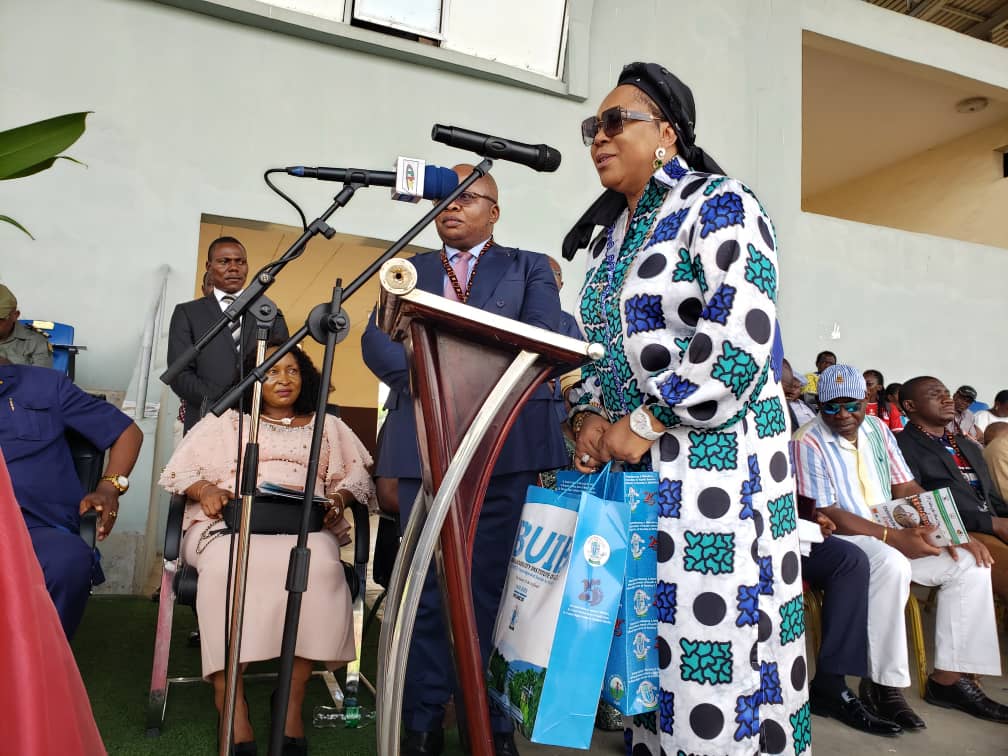
The atmosphere in the stadium was electric as the opening ceremony reached its climax with many traditional displays. Athletes from various institutions, regions and Nations eagerly awaited the next day’s signal to begin the challenging ascent up Mount Cameroon. The mountain, standing tall and majestic in the backdrop, seemed to beckon the runners to embark on a journey of endurance and achievement.
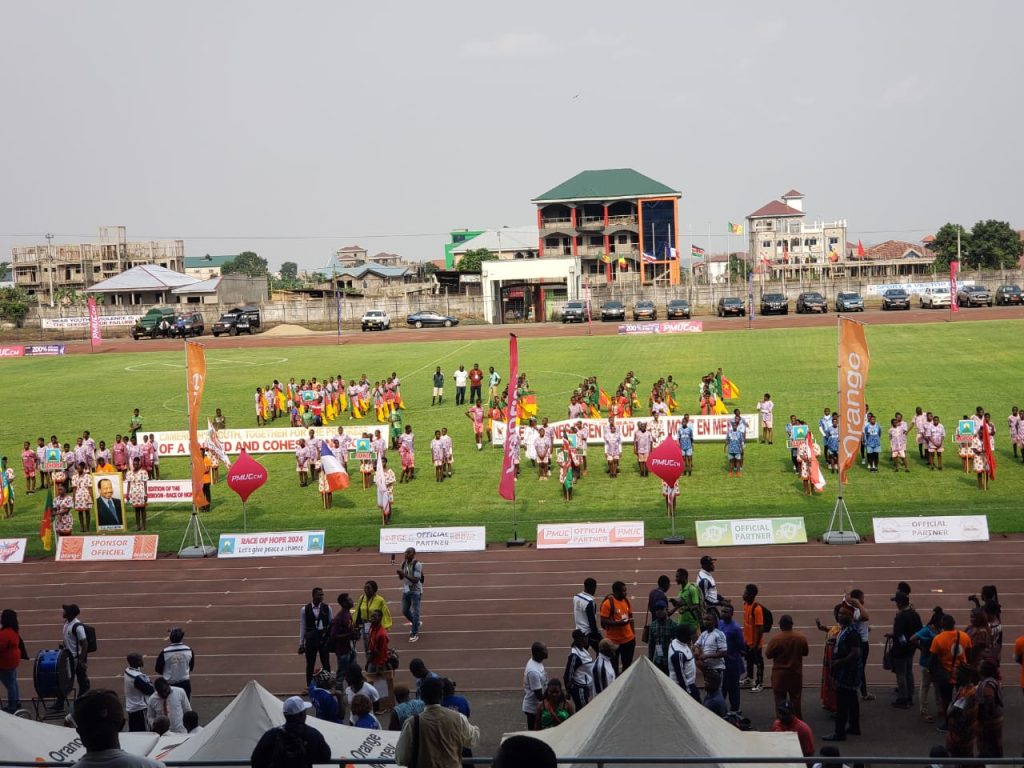
As the Minister of Sports and Physical Education will officially signal the start of the race on the 24th of February 2024, the participants will surg forward, fueled by a blend of excitement and determination.
Biaka University Institute of Buea’s participation at the opening day of the 29th edition of the Mount Cameroon Race of Hope was marked by a sense of community, respect for tradition, and a celebration of the indomitable human spirit. The race not only showcased athletic prowess but also fostered a spirit of unity and camaraderie that transcended the competition itself.


